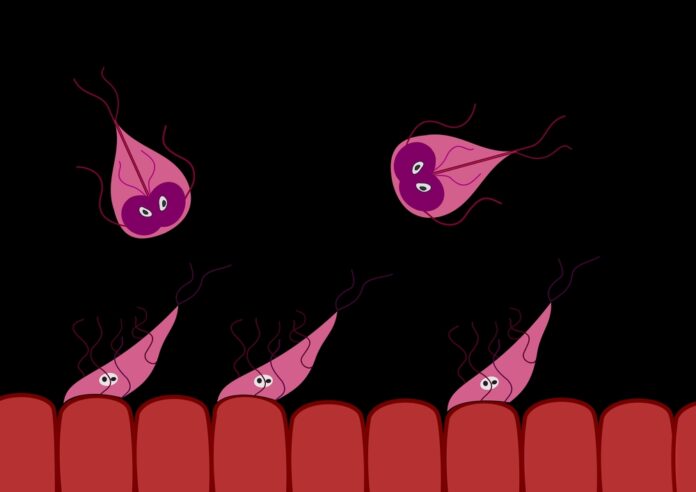Overview of Giardiasis
Giardia, or giardiasis, is a parasitic infection of the small intestine. A tiny parasite called Giardia lamblia causes it.
Commonly Associated With
Giardia; G. duodenalis; G. intestinalis; Traveler’s diarrhea – giardiasis
Causes Of Giardiasis
The giardia parasite lives in soil, food, and water. It may also be found on surfaces that have come into contact with animal or human waste.
You may become infected if you:
Are exposed to a family member with giardiasis
Drink water from lakes or streams where animals such as beavers and muskrats, or domestic animals such as sheep, have left their waste
Eat raw or undercooked food that has been contaminated with the parasite
Have direct person-to-person contact in daycare centers, long-term care homes, or nursing homes with people who are infected with the parasite
Have unprotected anal sex
Travelers are at risk for giardiasis throughout the world. Campers and hikers are at risk if they drink untreated water from streams and lakes.
Symptoms Of Giardiasis
The time between becoming infected and symptoms is 7 to 14 days.
Non-bloody diarrhea is the main symptom. Other symptoms include:
Abdominal gas or bloating
Headache
Loss of appetite
Low-grade fever
Nausea
Weight loss and loss of body fluids
Some people who have had a giardia infection for a long time continue having symptoms, even after the infection is gone.
Exams & Tests
Tests that may be done include:
Stool antigen test to check for giardia
Stool ova and parasites exam
String test (rarely performed)
Treatment Of Giardiasis
If there are no symptoms or only mild symptoms, no treatment may be needed. Some infections go away on their own within a few weeks.
Medicines may be used for:
Severe symptoms or symptoms that do not go away
People who work in a daycare center or nursing home, to reduce the spread of disease
Antibiotic treatment is successful for most people. These include tinidazole, nitazoxanide or metronidazole. A change in the type of antibiotic will be tried if symptoms do not go away.
Side effects from some of the medicines used to treat giardia are:
Metallic taste in the mouth
Nausea
Severe reaction to alcohol
In most pregnant women, treatment should not start until after delivery. Some drugs used to treat the infection can be harmful to the unborn baby.



